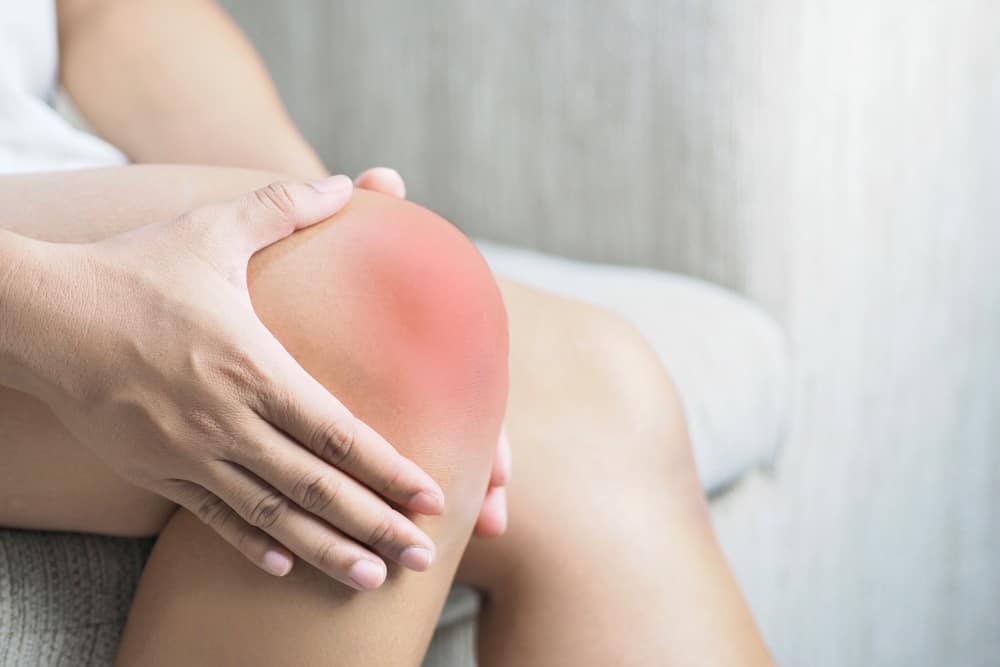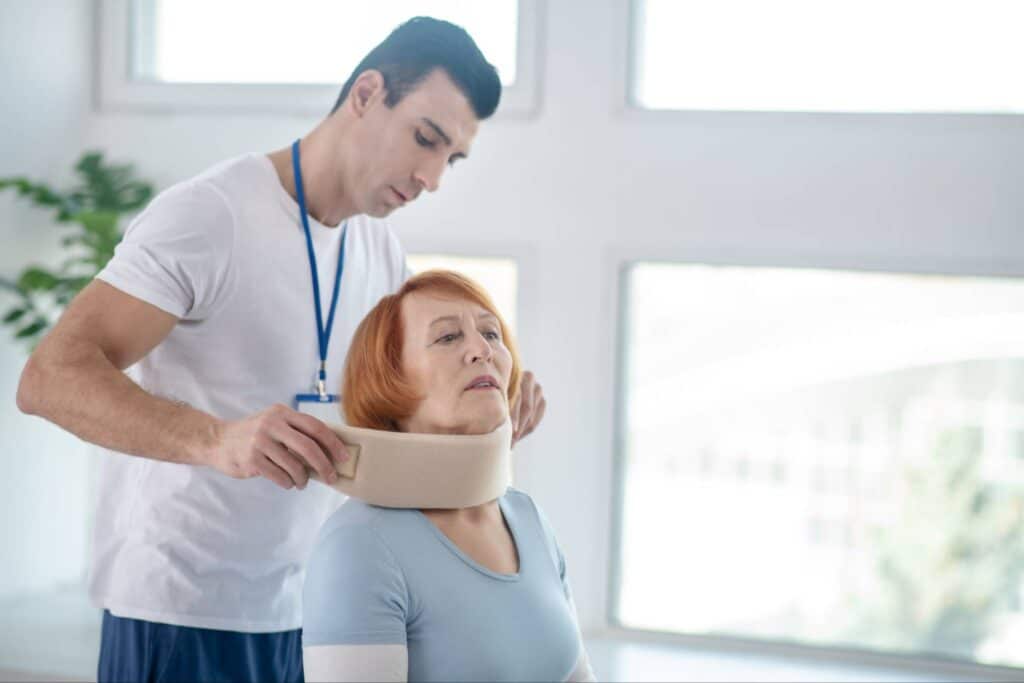If one of your knees is sore then it is likely causing you discomfort and could even be interfering with your daily activities. Knee pain is a very common reason for people to visit a knee doctor
because of how integral our knee joints are to moving us through our day and supporting our bodies. Sitting down and standing up is something you hardly think about until your knee is sore and then you are way more aware of how these common movements are affected.
Here are five ways to help your sore knee heal.
Use the “RICE” Technique
“RICE” is a helpful way to remember four steps you can take to help your body heal after a car accident injury or sports related injury from very a strenuous workout. The “R” in “RICE” refers to rest. The first thing you should do is rest your knee by stopping any exercise or minimizing the amount of walking around you may usually do. “I” refers to ice, and whether you have an ice pack or a bag of frozen peas, applying cold temperature to the area helps to reduce swelling in the area. “C” refers to compression, meaning to gently wrap the knee in an ace bandage or something similar, which also helps with swelling. Finally, “E” refers to elevation, meaning you should elevate your knee whenever you are sitting or lying down. All four of these steps help to reduce swelling and should be done in the hours and day or two after the injury.
Stabilize Your Knee
In the days and weeks after any common knee injury, you will likely continue to feel soreness even as you begin to heal. However, even if the pain and soreness are not as obvious, that doesn’t mean that your knee has fully healed. In fact, it is important to stabilize your knee so you don’t put your full weight on the knee or even risk re-injuring the area. There are a variety of ways to stabilize your knee depending on how serious the injury is and how much it impacts your day to day. For a mild injury with swelling and pain, you may want to use a knee brace to help stabilize the area. For a more moderate or severe injury, a walking aid such as a crutch or cane can help take some stress off of the knee and still help keep you moving around.
Exercise Safely
While it is important to rest your knee to help decrease or avoid swelling immediately after the injury, you still want to put your knee through safe motions in the days and weeks after the injury. If you rest too much, your muscles may weaken and you might feel stiffness in your knee when you try to do even normal tasks. There are a number of safe exercises to try that will still support your knee while helping strengthen the muscles and encourage flexibility. Water activities like swimming and water aerobics are great low-impact exercises for your whole body because you get the benefits of a cardio exercise without the additional strain on your joints. Stretching and yoga are also common exercises to try after an injury to help encourage blood flow, strengthen muscles, and increase flexibility.
Avoid High-Impact Activities
Some exercises should be avoided, especially ones that are more high-impact because they could even potentially injure your knee further. When you are dealing with a knee injury, you want to make sure that your knee stays stable, and more jarring exercises that put repetitive strain on your knee joints like running can be risky. Also, when your knee is healing from an injury you may not be able to participate in things you normally would like group sports or a spin class. A sore knee still healing from an injury is more unstable than normal and participating in high-impact activities can not only cause re-injury in the knee but also a fall that could cause injury elsewhere.
Visit a Knee Doctor
While these techniques are generally beneficial ways you can help a sore knee from home, you should still talk to a doctor about any pain or discomfort you are experiencing that interferes with your daily life. A knee doctor can talk you through specific exercises and knee stabilizers that work for your body and your specific injury. Your doctor can also run tests to get an accurate diagnosis and develop a comprehensive treatment plan. Knee pain and knee injuries are often very treatable, but you want to seek treatment from a professional to make sure a minor injury doesn’t get worse or even cause you chronic pain and discomfort. Knee doctors at AICA Orthopedics have the knowledge and expertise to diagnose and treat all kinds of knee injuries and issues, so call us to schedule your appointment today and get started.





